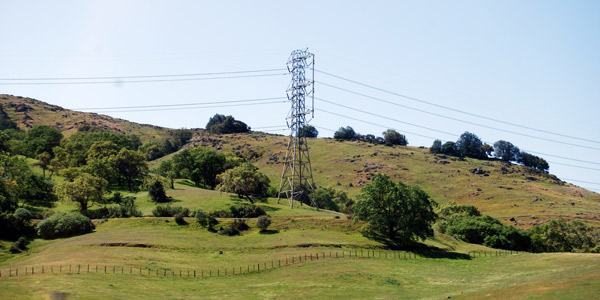By Michael Kuser
State officials in New England said last week that only they should have the ability to identify public policy-driven transmission needs for evaluation by ISO-NE.
“The plain language of [ISO-NE’s Tariff] designates NESCOE as the entity that identifies whether there are state or federal public policies driving transmission needs and, in turn, whether a public policy transmission study should be commenced to evaluate potential solutions,” the New England States Committee on Electricity said in a June 1 rebuttal to the Conservation Law Foundation.
CLF Senior Attorney David Ismay asked ISO-NE on May 16 to conduct a study to determine public policy transmission needs despite NESCOE’s contention that there are currently no such needs. (See CLF to ISO-NE: Override States, Order Public Policy Tx Study.)
Ismay said a D.C. Circuit Court of Appeals ruling in April confirmed the responsibility of ISO-NE, “not the states, to evaluate transmission needs and potential solutions as part of its Regional System Plan process, regardless of whether those transmission needs arise from state public policy requirements or any other source” (Emera Maine v. FERC, No. 15-1139). (See Court Rebuffs New England TOs, Upholds FERC ROFR Order.)
Misreading of Order 1000

NESCOE responded that “CLF misunderstands the Order 1000 process … and has conflated the process for evaluating solutions to policy-driven transmission needs with the process of identifying if there are any needs in the first place. Emera imposes no requirements on ISO-NE to determine public policy requirements driving transmission needs and directed no changes to the [Open Access Transmission Tariff].
“CLF mistakenly claims that Emera requires ‘ISO-NE to make its own determination … regarding the existence of [public policy requirements] that are driving, or may drive, transmission needs relating to the New England transmission system.’”
NESCOE said that ISO-NE’s rules on the identification of policy needs have never been in controversy, were not before the court and that FERC itself had affirmed to the court NESCOE’s role in that process. “If anything … Emera affirms the process reflected in the current OATT whereby NESCOE must first identify a state policy driving a transmission need before ISO-NE begins expending consumer dollars on evaluating a need. As Emera plainly states, ‘ISO-NE has no role in setting public policy for the states.’”
The organization closed its response by bemoaning CLF’s request as “precisely the kind of after-the-fact market participant action that causes the states serious pause in using a FERC-jurisdictional tariff to achieve their clean energy requirements.”
ISO-NE Director of Transmission Planning Brent Oberlin had told the Interregional Planning Stakeholder Advisory Committee for New England, NYISO and PJM on May 19 that if the RTO decides to conduct a public policy transmission study, it will need to provide a scope to stakeholders by Sept. 1.



